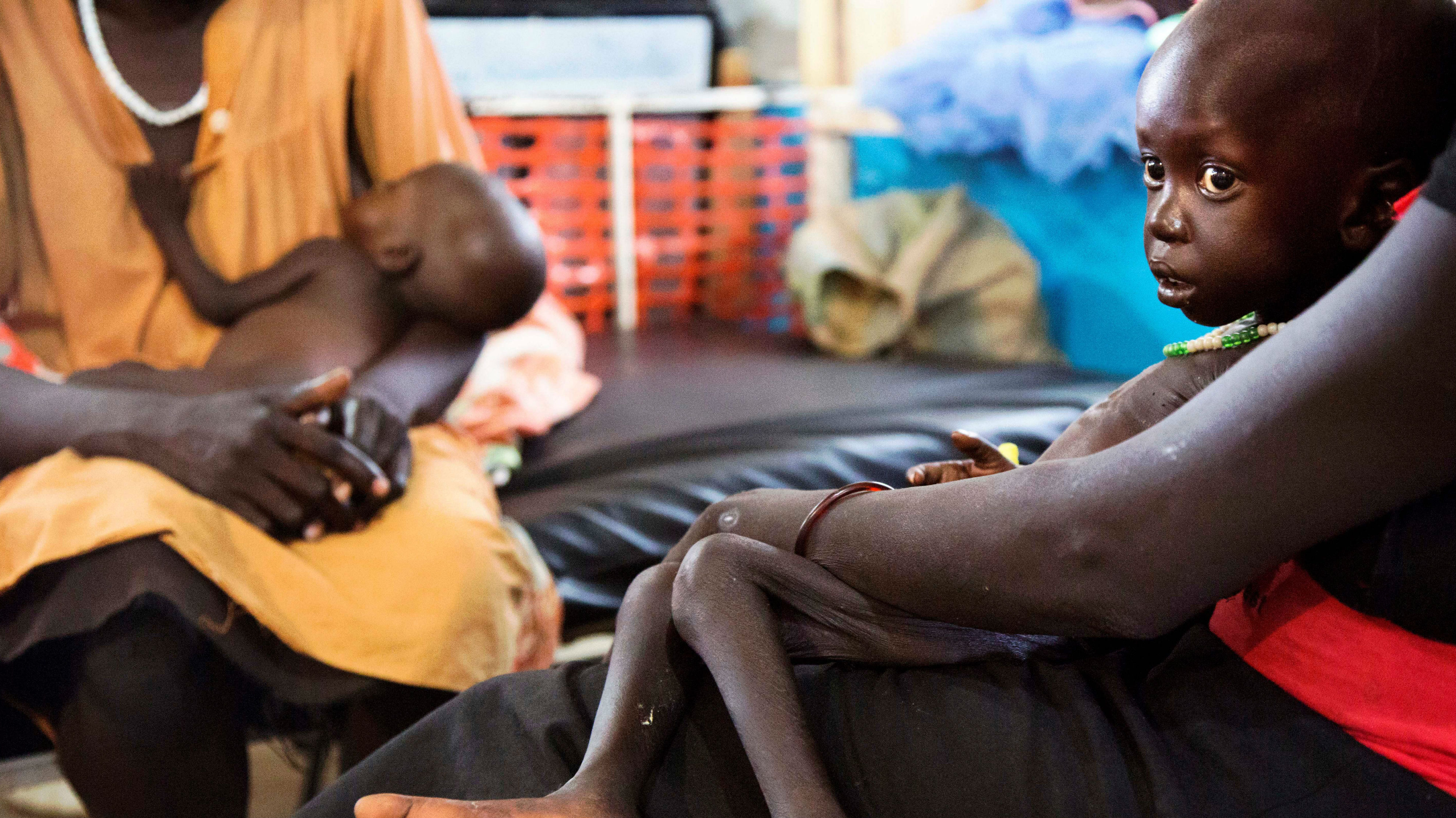South Sudan: Famine declared as civil war rages
Aids agencies' 'worst fears realised', with 100,000 people 'already starving' and up to a million more at risk

A free daily email with the biggest news stories of the day – and the best features from TheWeek.com
You are now subscribed
Your newsletter sign-up was successful
Famine has been declared in South Sudan, with a million people said to be at risk of starvation.
Unicef, the World Food Programme and the Food and Agricultural Organisation said on Monday that 100,000 people are "already starving", while a further one million are classified as being on the brink of famine.
They added that 5.5 million people, half the population, are considered to be at risk of food shortages by summer.
The Week
Escape your echo chamber. Get the facts behind the news, plus analysis from multiple perspectives.

Sign up for The Week's Free Newsletters
From our morning news briefing to a weekly Good News Newsletter, get the best of The Week delivered directly to your inbox.
From our morning news briefing to a weekly Good News Newsletter, get the best of The Week delivered directly to your inbox.
It is the first time in six years that famine has been announced anywhere in the world, Sky News reports.
The aid agencies said the situation in South Sudan was the "worst hunger catastrophe since fighting erupted more than three years ago".
Serge Tissot, from the UN's Food and Agriculture Organisation, said: "Our worst fears have been realised. Many families have exhausted every means they have to survive."
UN officials have accused the South Sudanese government of blocking food deliveries to some of the worst affected areas.
A free daily email with the biggest news stories of the day – and the best features from TheWeek.com
New York Times East Africa correspondent Jeffrey Gettleman told NPR that aid convoys and warehouses have been attacked "both by the government and by the rebels".
The wider effects of the civil war are at the root of the problem, with the conflict disrupting food distribution networks, destroying agricultural land and displacing the country's farmers.
While South Sudan greeted its independence from Sudan in 2011 with jubilation, the country's complex ethnic politics then turned extraordinarily violent and the last three years have seen it descend into intense in-fighting.
Government forces have been accused of brutal reprisals following rebellions by the Shilluk and Murle minorities, while tens of thousands of men and child soldiers belong to informal militias accused of mass executions, rape and torture of rival ethnic groups.
The UN has warned that South Sudan is the country at the highest risk of experiencing a genocide.
Joyce Luma, from the UN's World Food Program, said aid agencies are trying to fend off mass starvation in South Sudan "with all our might", but warned: "There is only so much that humanitarian assistance can achieve in the absence of meaningful peace and security."
-
 Political cartoons for February 16
Political cartoons for February 16Cartoons Monday’s political cartoons include President's Day, a valentine from the Epstein files, and more
-
 Regent Hong Kong: a tranquil haven with a prime waterfront spot
Regent Hong Kong: a tranquil haven with a prime waterfront spotThe Week Recommends The trendy hotel recently underwent an extensive two-year revamp
-
 The problem with diagnosing profound autism
The problem with diagnosing profound autismThe Explainer Experts are reconsidering the idea of autism as a spectrum, which could impact diagnoses and policy making for the condition
-
 Epstein files topple law CEO, roil UK government
Epstein files topple law CEO, roil UK governmentSpeed Read Peter Mandelson, Britain’s former ambassador to the US, is caught up in the scandal
-
 Iran and US prepare to meet after skirmishes
Iran and US prepare to meet after skirmishesSpeed Read The incident comes amid heightened tensions in the Middle East
-
 Israel retrieves final hostage’s body from Gaza
Israel retrieves final hostage’s body from GazaSpeed Read The 24-year-old police officer was killed during the initial Hamas attack
-
 China’s Xi targets top general in growing purge
China’s Xi targets top general in growing purgeSpeed Read Zhang Youxia is being investigated over ‘grave violations’ of the law
-
 Panama and Canada are negotiating over a crucial copper mine
Panama and Canada are negotiating over a crucial copper mineIn the Spotlight Panama is set to make a final decision on the mine this summer
-
 Why Greenland’s natural resources are nearly impossible to mine
Why Greenland’s natural resources are nearly impossible to mineThe Explainer The country’s natural landscape makes the task extremely difficult
-
 Iran cuts internet as protests escalate
Iran cuts internet as protests escalateSpeed Reada Government buildings across the country have been set on fire
-
 US nabs ‘shadow’ tanker claimed by Russia
US nabs ‘shadow’ tanker claimed by RussiaSpeed Read The ship was one of two vessels seized by the US military